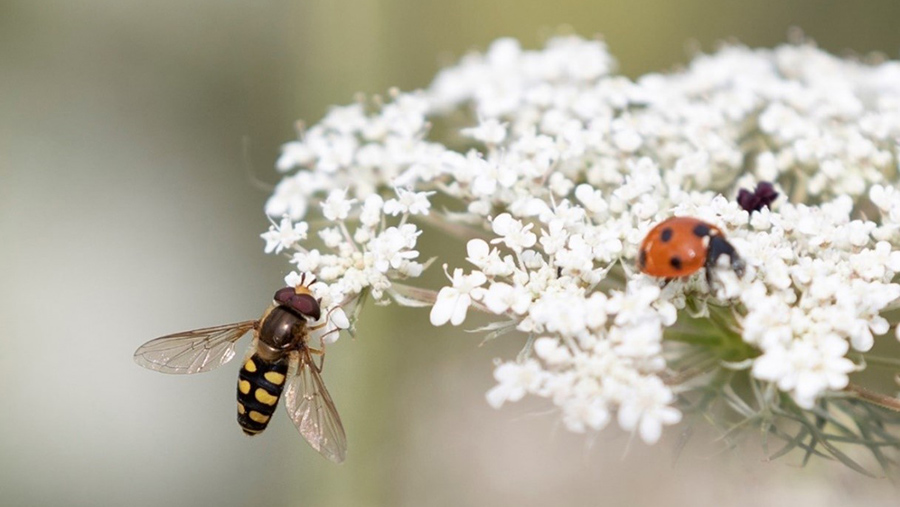M&S teams up with AgriSound for crop pollination project
 © M&S
© M&S Supermarket giant M&S has announced a three-year partnership with tech startup AgriSound, in the hopes of boosting pollinator activity and crop yields on British farms.
The project will take place on two M&S farms – one in Kent and one in Cambridgeshire – and will kickstart with the installation of in-field sensors, which will remain for the three-year period.
The AgriSound sensors use acoustic technology to act as special listening devices and environmental gauges to monitor the numbers of key pollinators, including bee species such as honeybees and bumblebees, along with other insects.
See also: Yields not affected by ‘nature-friendly’ approach, says report
The sensors track the pollinators in real-time and send collected statistics over mobile data, so that results can be viewed on a mobile app.
At the site in Kent, the sensors will be placed in an orchard, where they will monitor the effectiveness of varying densities of wildflowers, and how these attract pollinator species.
Chris Elworthy, director of the site in Kent, Plumford Farm, said: “Pollinators play a vital role in helping us to deliver the best-quality fruit we can at the farm – so we’re keen to see the impact of different wildflower densities in the orchard.
“With so many current environmental challenges, it’s now more important than ever to understand pollinators better.”
Cambs farm project
Meanwhile, at the farm in Cambridgeshire, the sensors will be placed in a number of different locations, including hedgerows, in wildbird seed mix, and pollen and nectar mixes. This will provide insight into how different habitats attract pollinators across different seasons.
The project forms a part of M&S’s Farming with Nature commitment – a five-year project to support the supermarket’s “Select Farmers” to weather the challenges of climate change and restoring biodiversity.
Linking Environment and Farming (Leaf) is also a partner of the Farming with Nature project, and has overseen the Marque certification of the M&S British Growers, each of which must allocate 5% of their farmland for wildlife and provide food for pollinators year-round.
Andrew Clappen, technical director at M&S Food, said: “Improving biodiversity is at the forefront of our plans to help farmers become more resilient to the impact of climate change. Pollinators are the unsung heroes of British farming – helping to improve yields and quality while benefiting the wider environment.”
